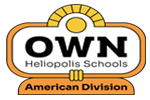Framework of the home-school partnerships
The Family-School Partnerships Framework provides information and resources to support schools to build and sustain effective partnerships with families and communities.
What are family-school partnerships?
Family-school partnerships are collaborative relationships and activities involving school staff, parents and other family members of students at a school. Effective partnerships are based on mutual trust and respect, and shared responsibility for the education of the children at the school.
Why are family-school partnerships important?
- Families are the first educators of their children and they continue to influence their children’s learning and development during the school years and long afterwards.
- Schools have an important responsibility in helping to nurture and teach future generations and families trust schools to provide educational foundations for their children’s future.
- At the same time, schools need to recognize the primary role of the family in education. This is why it is important for families and schools to work together in partnership.
Key Dimensions
Family-school partnerships should:
- view each partner as making equally valuable contributions, while respecting different contributions;
- respect student needs and preferences;
- address barriers to involvement in schools by families, and actively help previously uninvolved families to become involved;
- create better programs, opportunities and learning for students;
- give families appropriate opportunities to contribute to school decision-making and governance.
Contact us
Language School
01278282483
American School+2 01206373794
IGCSE School+2 012267973010
Core principles for developing partnerships
- parents and families are the first and continuing educators of their children.
- learning is lifelong and occurs in multiple settings.
- community engagement expands responsibility and resources.
- partnerships grow from mutual trust, respect and responsibility.
- partnerships need committed, collaborative and creative leadership.
Framework of the Home-School Partnerships

Communication
- is active, personal, frequent and culturally appropriate;
- is where schools go out of their way to make families feel welcome and valued;
- is a two-way exchange between families and schools;
- involves not only an exchange of information, but also an opportunity for schools and families to learn about each other;
- makes clear that families are genuine partners and can help solve big problems;
- is open to families’ needs and attitudes;
- acknowledges and celebrates the families’ input;
- is multi-dimensional;
- use different methods (oral, written, face-to-face, phone, email, …….etc.)
Connecting Learning at Home and at School
- the connection between successful partnerships and the child’s learning, including the importance of high expectations from both teachers and parents to the child’s success at school;
- families and schools working together to create positive attitudes to learning in each child;
- ensuring families are informed about and understand their child’s progress;
- families and schools valuing and using the skills and knowledge children bring both from the home to the school and from the school to the home;
- parents working with teachers in the educational decision-making process for their individual child;
- schools becoming a venue and agent for parental self-growth, learning and the development of new skills.
Building Community and Identity
- activities that improve the quality of life in a community while honoring the culture, traditions, values and relationships in that community;
- the work of schools includes aspects of the social, emotional, moral and spiritual development of young people.
Recognizing the Role of the Family
- as primary educators of their children, parents and families have a lasting influence on their children’s attitudes and achievements at school;
- they can encourage their children’s learning in and out of school and are also in a position to support school goals, directions and ethos.
Consultative Decision-Making
- an inclusive approach to school decision-making and parental involvement creates a sense of shared responsibility among parents, community members, teachers and school leaders;
- ensures that parents’ values and interests are heard and respected;
- makes the school more accountable to its community;
- ensures that the values and opinions of families are sought outside the formal school structures
Collaborating Beyond The School
- identifying, locating and integrating community resources which can strengthen and support schools, students and their families.
Participating
- families’ time, energy and expertise can support learning and school programs in many ways.
- working with students on learning activities in classrooms;
- participating in other school activities outside the classroom;
- participating in activities outside the school itself.

